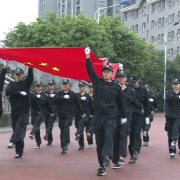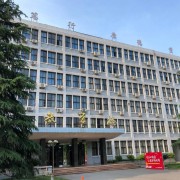happento?happen和happen
来源:择校网 时间:2025-02-13 15:26:36
一、happen和happen***to有什么区别
区别:用法不同。
happen:happen指“偶然发生”时,主语为“事”;当主语是“人”时,意为“碰巧”。happen to sb./sth.指不好的事情发生在某人(物)身上。
相关句子:
1、What happened to you?
你怎么了?
2Maybe something unexpected happened.
也许发生了意想不到的事。
3、I happened to see him on my way home.
我在回家的路上碰巧看见了他。
take place表示“发生、举行、举办”,一般指非偶然性事件的“发生”,即这种事件的发生一定有某种原因或事先的安排。
相关句子:
1、Great changes have taken place in our hometown during the past ten years.
在过去的十年里,我们家乡发生了巨大的变化。
2、The Olympic Games of 2008 will take place in Beijing.
2008的奥运会将在北京举行。
二、happen和happen to的区别是什么
首先我们来看下happen和happen to的大致意思:
happen:词性为动词,to take place or occur; come to pass.
happen to:词性为动词短语,to have the fortune or chance(to do something); come about or suddenly appear in a particular way or place.
通过下面的表格我们了解下happen和happen to的含义、发音和用法
接下来让我们看下happen和happen to的用法区别:
1.词义:happen用于描述事件或情况的发生,表示偶然性;happen to用于描述某人或某物在某个时间或地点发生了意想不到的事情。
例子:
- It happened to rain yesterday.
(昨天下雨了。)
- I happened to meet him on the street.
(我碰巧在街上遇到了他。)
2.语法结构:happen是及物动词,后面可以直接接名词或代词作宾语;happen to是不及物动词短语,后面必须接名词或代词作宾语,并且to为介词。
例子:
- His wedding happened to be canceled suddenly.
(他的婚礼突然取消了。)

- I happened to see him yesterday.
(我昨天碰巧看到了他。)
3.用法:happen多用于正式场合,描述一般的事件发生;happen to多用于口语和非正式场合,描述偶然发生的事情。
例子:
- The accident happened at 7 o'clock in the morning.
(这次事故发生在早上7点。)
- I happened to see her at the supermarket yesterday.
(我昨天碰巧在超市看到了她。)
4.频率:happen较常见,可用于各种场合;happen to较少见,多用于口语和非正式场合。
例子:
- Such things happen often.
(这样的事情经常发生。)
- I happened to see him.
(我碰巧看到了他。)
5.语气:happen表示客观事实,中性语气;happen to表示主观感受,带有一定的偶然性和意外性。
例子:
- It happened to be the best decision I've ever made.
(这是我做过的最好的决定。)
- This kind of situation doesn't happen often.
(这种情况并不经常出现。)
三、happen to和take place的区别
这两个词的区别我懂,happen to"更侧重于描述事件,不涉及位置和时间的细节。而"take place"通常包含了活动发生的特定时间和地点。给大家简单总结了两个词的含义、发音以及用法,先大概的了解一下~~
接下来让我们看下happen to和take place的其他区别:
1."Happento"表示某事意外地或偶然地出现或发生,语气比较随意。而"Take place"表示某事有意地或按计划地发生,语气比较正式。
例句:
- I happened to see Jane at the supermarket yesterday.
我昨天偶然在超市看到了简。
- The meeting will take place at 2 pm tomorrow.
会议将在明天下午两点钟举行。
2."Happen to"可以表示的范围比"Take place"广泛一些,可以用于各种事情,而"Take place"只能用于事件、活动等类似的情况。
例句:
- I happen to have a spare key if you need it.
我碰巧有一把备用钥匙,如果你需要的话。
- The conference took place in Paris last year.
去年的会议在巴黎举行。
3."Happen to"更侧重于描述事件,不涉及位置和时间的细节。而"Take place"通常包含了活动发生的特定时间和地点。
例句:
- I happened to run into an old friend at the gym.
我偶然在健身房碰到了一位老朋友。
- The wedding will take place at the church on Sunday.
婚礼将在周日在教堂举行。
4."Happen to"的语气中包含了一些偶然性和可能性,而"Take place"的语气则表示活动很可能会按照计划进行。
例句:
- I happened to find a rare book in the library.
我在图书馆偶然发现了一本珍贵的书。
- The concert will take place on schedule.
演唱会将按时举行。
5."Happen to"可以用于肯定和否定语句,而"Take place"只用于肯定语句。
例句:
- I happened to remember where I put my keys.
我碰巧想起了我把钥匙放在哪里了。
- The game will take place at the stadium.
比赛将在体育场举行。
6."Happen to"可以与其他动词搭配,如"happen to know","happen to be","happen to see","happen to have"等,而"Take place"通常不会搭配其他动词。
例句:
- I happened to meet my old friend at the party yesterday.
我碰巧在昨天的派对上遇到了我的旧朋友。
- Our meeting will take place at 9 am next Tuesday.
我们的会议会在下个星期二上午9点钟开始。
四、happen on和happen to各是什么意思有何区别
happen on和happen to的区别是意思不同、用法不同、侧重点不同,含义如下:
一、意思不同
1.happen on意思:巧遇,偶然发现
2.happen to意思:发生在…身上
二、用法不同
1.happen on用法:不及物动词,作“发生”解时,可指偶然的事故,也可指有计划或无计划发生的事,一般以事件、环境、形势等作主语。
2.happen to用法:一般以事件、环境、形势等作主语,表示“某人发生某事”时,须以介词to引出“某人”,作“碰巧”解时,其后须接动词不定式构成复合谓语,可由人称代词或无人称代词it作主语,与if连用则可使语气委婉。
三、侧重点不同
1.happen on侧重点:后面加的可能是时间/地点等名词(短语),而这个短语恰好是要求用介词on的。
2.happen to侧重点:happen to是固定搭配。
好了,文章到这里就结束啦,如果本次分享的happento和happen和happen问题对您有所帮助,还望关注下本站哦!







